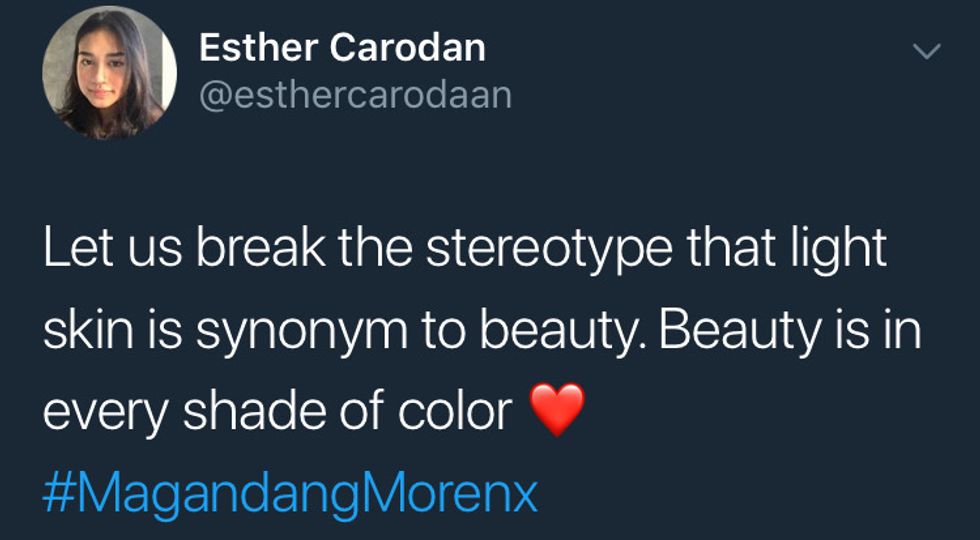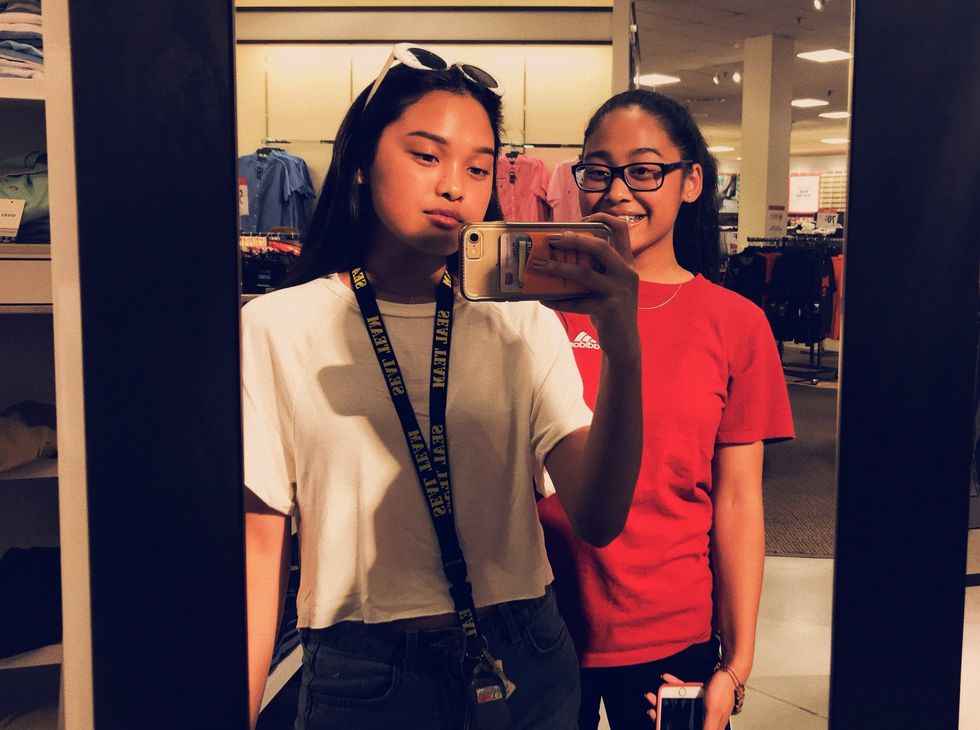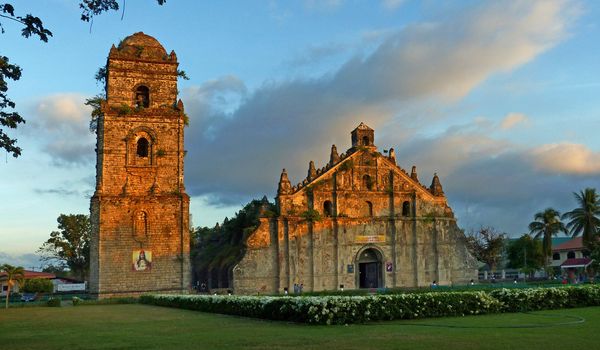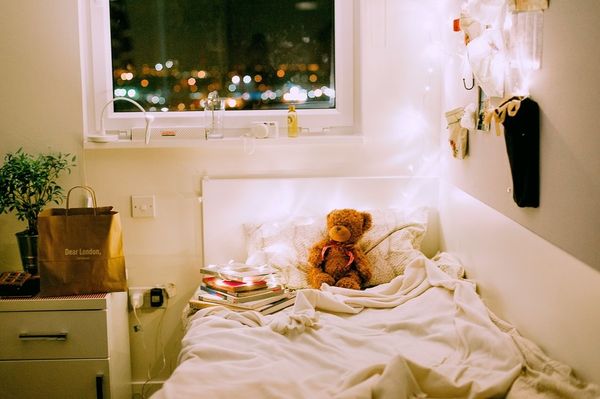My entire life revolves around being Filipino. Things like the food I eat, my hobbies, my interests, and my values are all somewhat determined by this core piece of my identity. Despite this, there was a point where I was insecure about how being Filipino determined so much, especially how it determined what I looked like.
A majority of Filipinos can be described physically as having tanned skin, dark brown eyes, wide noses, and short or petite statures. Unsurprisingly, this is exactly what I look like, and most of my insecurities actually stemmed from these physical traits that I was born with, but mainly my skin color.
When I was about ten years old, I remember being enrolled in a week-long youth soccer camp during the summer, and the very last day of the camp involved outdoor barefoot tournaments. I hadn't become conscious about my skin until the end of that day, which explains why I chose to neglect the brand new bottle of spray-on sunscreen that my parents had packed me. I had just learned about melanin that past school year, so I thought that my melanin would be enough to protect me from the sun, but at the end of the day, I was at least five shades darker than when I had been dropped off.
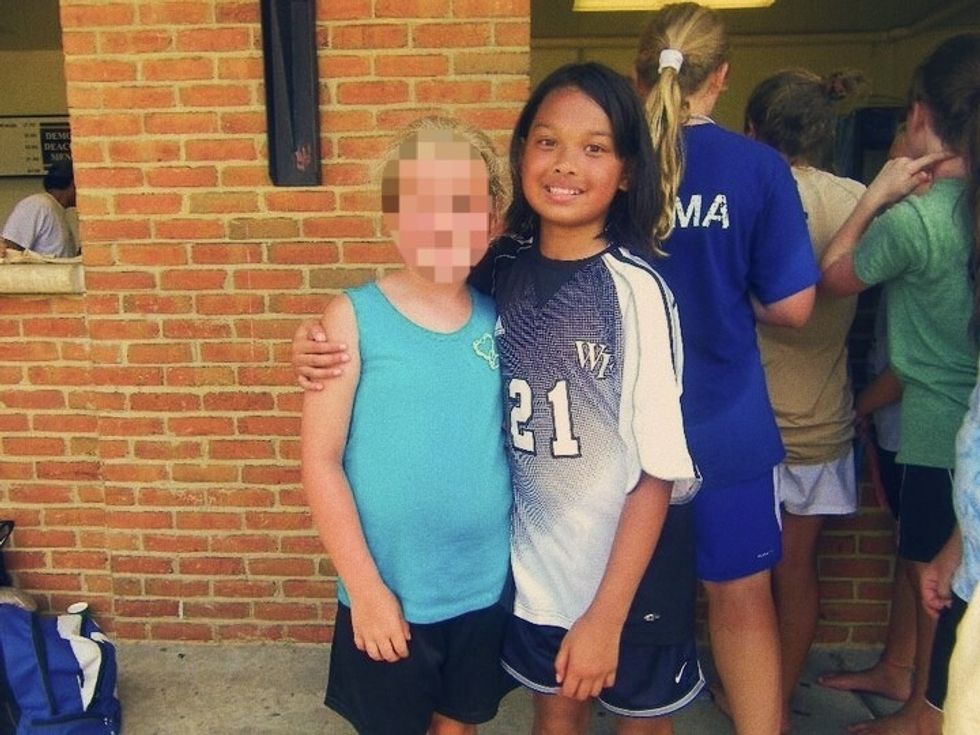
I knew that there was nothing wrong with dark skin, but for some reason, I was embarrassed by the fact that I could even tan that much. It was even more embarrassing when I was innocently asked to take a picture with my white friend who was obviously considerably lighter than me. Ever since then, I stayed aware of how long I stood in the sun, and I even adopted the habit of carrying sunscreen with me wherever I went. I obsessed over DIY skin lightening methods at such a young age, and I even snuck my mother's "light beige" skin products to my room for me to use throughout middle school.
This went on through part of high school until one summer when I realized that I was constantly turning down my siblings' requests to hang out at the pool because, as stated by them, "You just don't want to get darker." I tried to become more confident in my own skin, reflecting on stories my parents told about their childhoods in the Philippines and how they were constantly outside under the sun. Another thing that boosted my confidence was when a cousin told me that it was once common for Filipinos with lighter skin to be associated with the powerful, wealthy nobility and upper class while those with darker skin were often associated with the hardworking, resilient lower class who spent their days toiling in plantations and at sea. Considering how much I value the hardworking spirit, this was surprisingly a really inspiring point for me. This isn't to say that those with lighter skin don't work hard, or that all people with darker skin belong in the lower class. Instead, it shows that anyone of any skin tone or color has something to take pride in about themselves.
Skin color was not my only insecurity, but once I wholeheartedly accepted it, accepting the rest of who I was by blood and by birth became a lot easier. Over time, I took less shame in my tan skin, our unique home cooking and food, my quirky native language, and my family's traditions. I think the biggest obstacles to overcoming such culture- and race-based insecurities are just the circumstances that I grew up in. I'd like to think that if I had grown up in an environment where the majority population was Filipino, I would have less likely faced this insecurity. However, in both American and Filipino societies, standards for how one should act, speak, what one should believe in, and especially what one should look like have been set by history, popular culture, and majority groups.
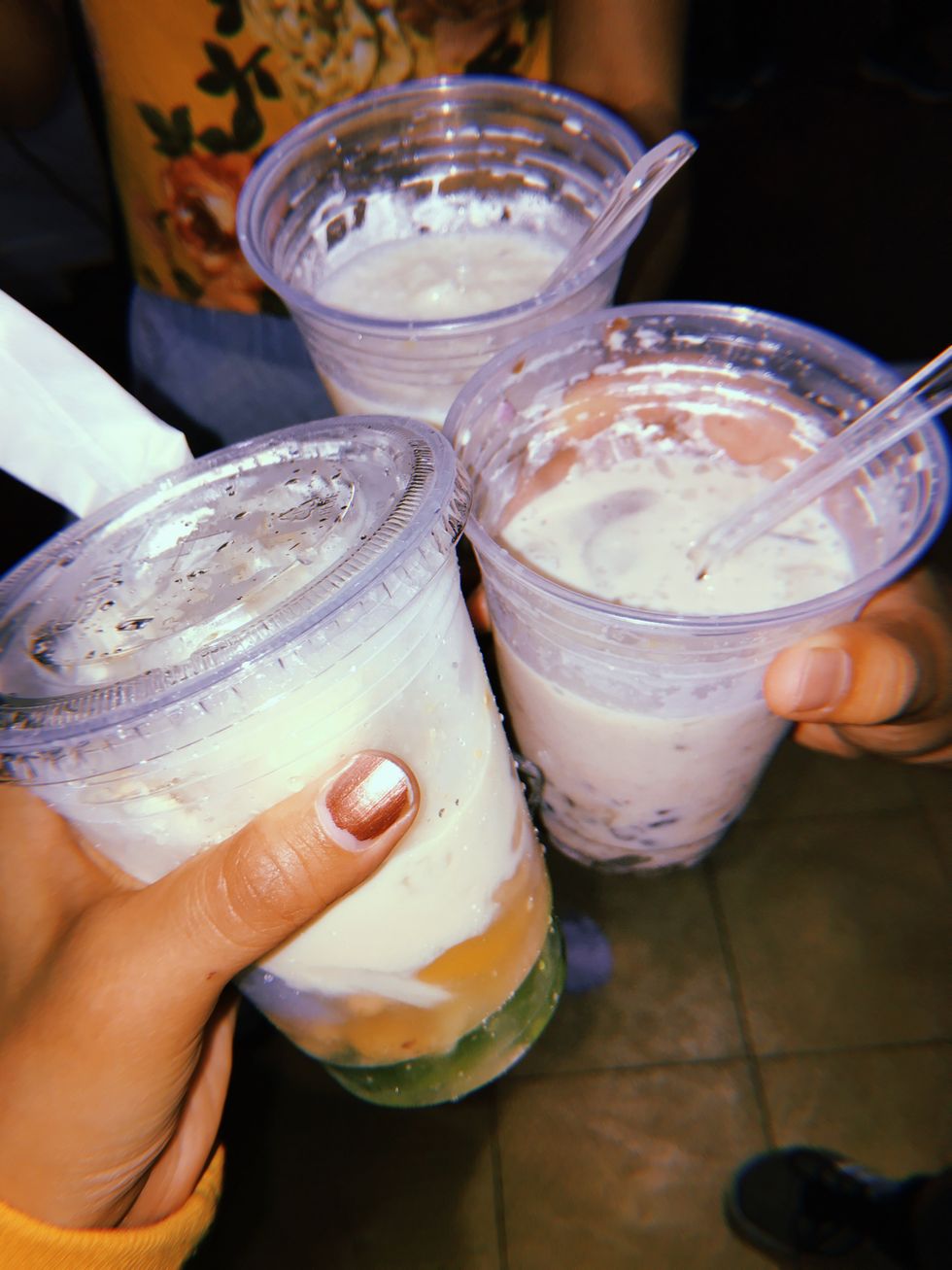
As a young immigrant and minority POC in the US, my mere seventeen years of life seemed to be so full of measurements and comparisons to those around me, but along the way, I learned that feeling comfortable with myself should not involve anyone else's acceptance – just mine. I learned to embrace what I now know about Filipino culture and made being Filipino the centerpiece of my identity. It's much easier said than done, but at the end of the day, my skin is my skin just as my heritage is mine to love, appreciate, and share with others as I please.
